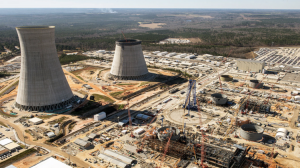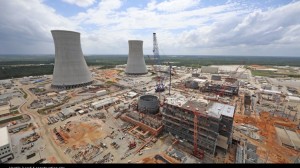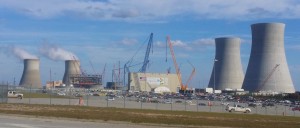 3/27/18 ATLANTA — Representatives of the Stop CWIP Coalition delivered a petition containing more than 3,000 signatures to Governor Nathan Deal’s office in support of the recent passage of Senate Bill 355 to sunset the Georgia Nuclear Energy Financing Act of 2009 with the Vogtle 3 & 4 project. The bill is awaiting the governor’s signatures to become law.
3/27/18 ATLANTA — Representatives of the Stop CWIP Coalition delivered a petition containing more than 3,000 signatures to Governor Nathan Deal’s office in support of the recent passage of Senate Bill 355 to sunset the Georgia Nuclear Energy Financing Act of 2009 with the Vogtle 3 & 4 project. The bill is awaiting the governor’s signatures to become law.
In 2013 several groups launched the Stop CWIP Campaign with a petition drive to repeal the 2009 law. The groups forming the Stop CWIP Coalition are: ARRP (Aging Raging Rate Payers), Atlanta Grandmothers for Peace, Center for a Sustainable Coast, Georgia WAND (Women’s Action for New Directions) and Nuclear Watch South.
The groups delivered the petition entitled “Stop the Nuclear CWIP Tax” in support of Governor Deal’s anticipated signature to ratify Senate Bill 355 which sunsets the Georgia Nuclear Energy Financing Act of 2009. The controversial law legalized collection of advance payments for Vogtle 3 & 4 which are under construction in Burke County. The nuclear tariff has been charged on residential and small business electric bills since 2011. The additional Vogtle reactors are currently less than half-built and are at least $5 billion over budget and five years behind schedule. Senate Bill 355 easily passed both the Senate and the House and now awaits Governor Deal’s signature.
Read the whole article: Nuclear Watch South




